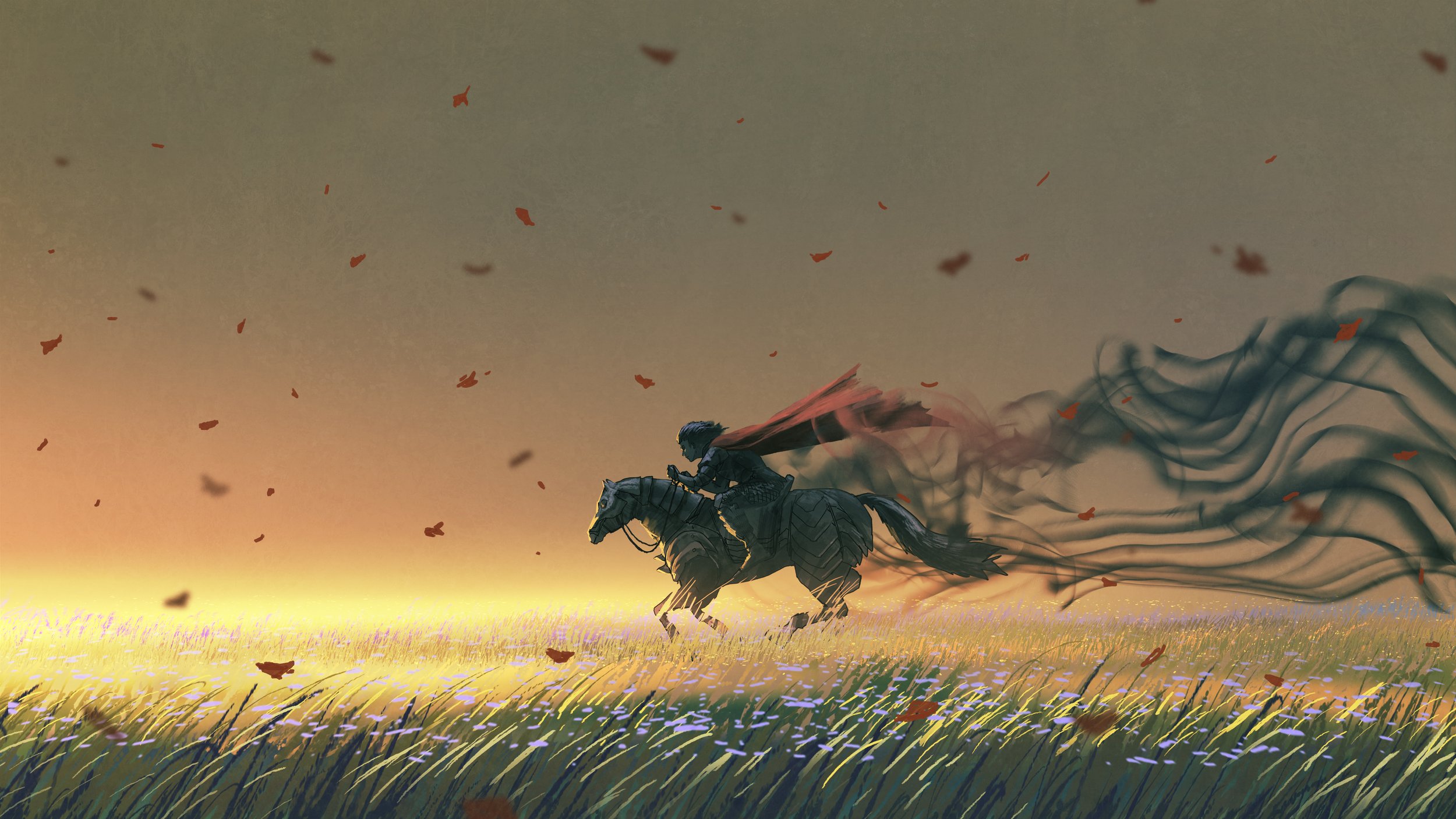Real-Life Questing
Heroes face dangers, overcome obstacles, defeat their enemies, and in the end, are triumphant. In games, we take missions, complete quests, and play the victorious hero. But what about real life?
We may not have dragons to slay and princesses to rescue, but there are plenty of real quests to be found. And like those in games, our quests our stats, help us to level up and make us successful.
Types of Quests in Games
In games, developers design quests as an architecture for gameplay. Players progress through them to complete their character’s storyline. Quests may be a simple fetching quest to a complicated series of tasks that twist and turn through the whole game.
Most quests in games tend to fall into a few categories:
Interaction Quests
There is a lot of variety in this type. It can be a request to go talk to someone, a mini-game challenge, complete a puzzle, solve a mystery, etc. These types of quests make the game feel more immersive to players.
Killing Quests
These are the most common type of quests in games. It can be an order to kill the monster terrorizing the town, assassinate an NPC, or complete the conquest of a neighboring village. Killing quests are typically for players to gain experience points and to advance the storyline.
“Quests serve the same function in real life as they do in games, to improve our skills, encourage us to explore, fund our advances and move us towards our goals.”
Protection Quests
Quests of this type would include escorting an NPC, defending a town, or protecting a character while they are completing a task. While opposite in title to killing quests, there is typically a lot of fighting to achieve these missions. They often serve the same purpose to gain experience points for the player.
Fetching Quests
These come in several different forms. There are gathering quests where players need to collect crafting materials. Delivery quests may involve serving as postal official carting letters across town. A location-based quest may be to find a missing object or hidden area. Fetching quests can encourage players to gather materials needed to level up crafting skills, travel to new regions and explore the map, and introduce side stories to make the world feel more expansive.
In completing quests, players level up their skills, travel the map, gain coins for buying better gear and game assets, and advance the story. Quests in real life serve the same function. They improve our skills, encourage us to explore, fund our supplies and move us along in fulfilling our purpose.
Real-life primarily relies on fetching and interacting types of quests and fulfills the same purpose as those in games. Your significant other asks for a package delivered to the post office; a child needs help to find a lost toy, the boss needs materials gathered for an upcoming meeting. In exchange for completing these tasks, you get experience points in your romance skill, gain a level in parenting, or get paid so that you can buy new gear and supplies.
“To begin is the most important part of any quest and by far the most courageous.”
- Plato
What are Quests in Real Life?
In real life, our quests are our goals and tasks, just like those of a character in the games we play. And like those in a game, real life quests tend to be in the same categories.
Interaction quests make up the majority of the quests given to us. It may be a request to talk to a client, figure out the mystery of balancing our personal expenses or decorating your home. They are the tasks that require us to interact with our environment and others. To complete complicated tasks and solve issues.
Though one of the most popular types in games, killing quests are rare in real life. Military special forces or war-torn areas may be more likely to encounter these, the majority of us will never encounter a killing quest. However, we can certainly take on a quest to absolutely kill that project that we’ve been working on.
Protection quests are also less common in reality. However, they do exist in everyday life. Walking someone across the street, standing up for someone or something, or protecting a loved one from harm are all forms of protection quests.
Fetching quests are probably the second most common form of real quests. We need to deliver that paper to the teacher, pick up the groceries for a spouse, find a child’s missing toy, these are all fetching quests.
Like those in games, all quests have similar outcomes. We may earn coin, experience points that will help us advance our skills, gain an audience with another guest giver that can provide us with further quests to advance our story, etc.
“Everything you possess of skill, and wealth, and handicraft,
wasn't it first merely a thought and a quest?”
― Rumi
Where to Find Quests in Real Life?
In video games, quest givers are usually easy to recognize by their colored chat bubbles or nameplates. Real-life sometimes is just as simple; the teacher with schoolwork assignments that are required to complete the diploma questline, perhaps the manager at a job site. There are also job boards, the modern-day equivalent to the board in the village square that lists possible daily quests. Though it’s not always that easy to find the quest giver.
Think about a typical Dungeons & Dragons campaign. How many adventure games start with the party gathered in a tavern? Suddenly there is a brawl, news of a major catastrophe, or a suspicious figure appears. The players decide to investigate, thus starting their quest.
Or sometimes, nothing seems out of place at all. It’s not obvious what to do next and we must dig deeper. In games, we might talk to random villagers for rumors or perhaps ask about a monster sighting. Sometimes these provide fascinating conversations which may or may not lead you towards your goal.
In real life, this is another way to find quest givers. That elderly neighbor may have first-hand knowledge on a subject that fascinates us enough to learn more and gain experience points in history. A friend who needs help managing a fundraising event could give us a quest that helps us to earn points in charisma. We may take a quest where we do a favor for someone and they turn out to introduce us to another quest giver that connects us to a new job.
But there are also occasions, we were really aren’t sure where to find the next quest giver in our story. Here are some suggestions to try to find more opportunities to take real life quests:
Try new hobbies to see what other skill trees might be interesting to level up.
Meet new people outside your current social circle; you won’t learn swordsmanship if you only hang out in the archer’s guild.
Do volunteer work and help out the other players; it may lead to some amazing interactions.
Find new experiences and explore to see what types of quests appeal to your purpose.
Grinding
Grinding is a fact of life, whether it be a video game when you’re at a higher level or in real life. Completing 200 floors instead of 5 to get to that one skill point may feel as much of a drag in a game. Just like going to the gym day after day to get into better shape may feel like grinding in real life.
But just like a game, as we are working towards our goals. Those days are the gym are giving us experience points in strength and stamina so that we can eventually level up and become more fit.
Whether in a game or in real life, in order to complete our goals, we have to do the grind.
Side Quests
Side quests are important to our overall storyline by allowing us to gain experience, level up our characters, gather resources, and earn gold. However, if you’ve played a large RPG, like Skyrim for example, you probably know how easy it is to take too many side quests at once. And possibly in doing so, losing sight of the main storyline for a bit.
In a game, we return to the main story later on. Taking on the master boss with our max-level gear and defeating him with ease. But in real life, we don’t have the same unlimited time for our adventuring. We can’t do all the side quests and still have the ability to complete our main story as well.
Be careful not to take so many side quests that they are distracting. Make sure that your side quests are still contributing to your goals and not wasting your time and upstaging your main quest.
“What is it we are questing for? It is the fulfillment of that which is potential in each of us.”
- Joseph Campbell
Conclusion
To quest means to go in search of, to pursue, to discover, and to seek. In games and life, quests teach us new skills and allow us to explore, have new experiences. They help us afford the adventuring supplies that we need to continue our journey and ultimately they lead us to our overall purpose and mission. To succeed, we must be open to taking on challenging tasks and be willing to grind to gain experience when necessary. We must always keep our focus on the main goal.
Find what you’re good at, meet new people, try new things and embrace your quests. And if perhaps you do find yourself in a medieval tavern, go ahead and take that opportunity to ask the bartender about any town rumors. You never know, asking random strangers about potential monster sightings in real life may not be the best solution, but it certainly may lead to some fascinating conversations and quest opportunities.
Author:
Laurie Trueblood is a writer and life coach that enjoys fantasy, science, psychology, and everything nerdy. As the founder of Adventures to Authenticity, her mission is to help others level up and become the best versions of themselves.
Interested in finding more about how real life can be seen through the lens of an RPG? Check out our journey page or read Why Real Life is the Hardest RPG and Is Life an RPG? Why We Should Treat Life as a Roleplaying Game











